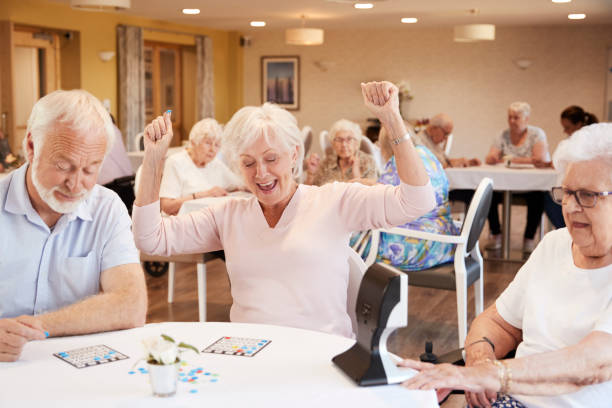People with Alzheimer's disease need support that involves plenty of regular cognitive stimulation and social interaction. Lack of activity often breeds apathy or anxiety, which cascades into behavioral disturbances. Therefore, keeping your loved one involved and active in the things he or she likes is extremely important.
Ideally, activities for a person living with dementia must:
- Maintain residual skills or compensate for lost capabilities
- Keep the mind stimulated and the body active
- Provide an opportunity for enjoyment, pleasure, and social contact
But above all, in order to be beneficial, the activity must promote self-esteem and be done in a way that ensures the success of your loved one.
So, if you want to create some activities for dementia patients on your own, here are my five main tips:
- Consider the person's cultural background
The activity must be customized according to the person's lifestyle, previous work, hobbies, life interests, travels, family, and important events.
- Make fun a priority
Like everyone, your loved one will be pleased to do the activity if it's fun. It shouldn’t be an activity that reminds them of things like homework, work deadlines, medications, or obligations! Just fun and joy. Think about your loved one’s previous hobbies, such as music, sports, or reading, and adapt the activity to have a good time! Do not forget that your loved one can enjoy an outing even if she or he has lost their sense of direction.
- Create flexible activities
Since your loved one’s capabilities fluctuate from day to day (and eventually decrease), you will have to adapt the activities and perhaps make several attempts, if an activity is not successful or enjoyable the first time around. Keep in mind that when your loved one sees you doing something, this will likely encourage him or her to join you and begin the activity, even if they were not open to it at first.
- Prepare a safe area
Since vision and coordination can present challenges for dementia sufferers, make sure to minimize noise and distractions. Also, the less material you need, the better. Choose a well-lit space where your loved one can sit properly and comfortably. Do the activity at the best time of day for your loved one; mornings are often ideal.
- Reinforce adequacy and reduce stress
To ensure the success of your loved one, choose simple activities and go through them step by step. Give one instruction at a time. If necessary, you can also prepare each step in individual plastic containers to avoid difficulties or breakage. Avoid overstimulating your loved one, which can cause stress and be counterproductive.
Trust yourself and dare to try new things that may please the person you are accompanying.
If you want examples of activities for people with dementia, you can also check out the "10 best activities for people with Alzheimer's."
Or, if you are looking for games designed for people with Alzheimer’s or another form of dementia at a moderate stage, you can visit our page:
https://gleaminyoureye.com/pages/concept
Take care! And feel free to give me your feedback at info@gleaminyoureye.com.
By Marie Vaudry
Caregiver of a mother, France, diagnosed with early-onset Alzheimer's at 59 years old
and Founder of Gleam in Your Eye, a company dedicated to bringing joy to the lives of people with dementia.




